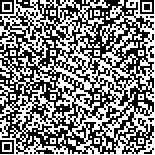| 摘要: |
| [摘要] 目的 探讨重型颅脑损伤机械通气患者呼吸道管理的最佳方法,降低肺部感染的发生率。方法 将90例重型颅脑损伤机械通气患者随机分为观察组和对照组各45例。观察组从吸痰时机、吸痰方式、呼吸机管路更换周期、口腔护理等问题进行相关文献查询,寻找实证,用实证对病人实施护理;对照组按常规进行呼吸道管理,比较两组肺部感染发生情况。结果 观察组效果明显优于对照组(P<0.05)。结论 运用循证护理指导临床实践,能有效降低重型颅脑损伤机械通气患者肺部感染的发生率。 |
| 关键词: 循证护理 重型颅脑损伤 机械通气 肺部感染 干预 |
| DOI:10.3969/j.issn.1674-3806.2010.10.38 |
| 分类号:R 651.1 |
| 基金项目: |
|
| Effect of evidence-based nursing intervention on pulmonary infection of patients with severe traumatic brain injury undergoing mechanical ventilation |
|
SHI Qing-fen, LIANG Yu-tao, DU Xue-fen, et al.
|
|
Department of Neurosurgery, the Second People′s Hospital, Nanning Guangxi 530031, China
|
| Abstract: |
| [Abstract] Objective To investigate the best way of airway management for the patients with severe traumatic brain injury undergoing mechanical ventilation and reduce the incidence of pulmonary infection. Methods Ninety patients with severe traumatic brain injury undergoing mechanical ventilation were randomly divided into observation group and control group with 45 cases in each group. In the observation group the related literature query were performed, looking from suction, suction mode,ventilator pipe replacement cycle, oral care and other issues looking for evidence, and carrying out nursing intervention on the patients using the empirical evidence; the control group received conventional respiratory management. And the conditions of pulmonary infection in two groups were compared. Results The effects of the observation group were better than that of the control group (P<0.05). Conclusion The use of evidence-based nursing in clinical practice can effectively reduce the incidence of pulmonary infection of the patients with severe traumatic brain injury undergoing mechanical ventilation. |
| Key words: Evidence-based nursing Severe traumatic brain injury Mechanical ventilation Pulmonary infection Intervention |

